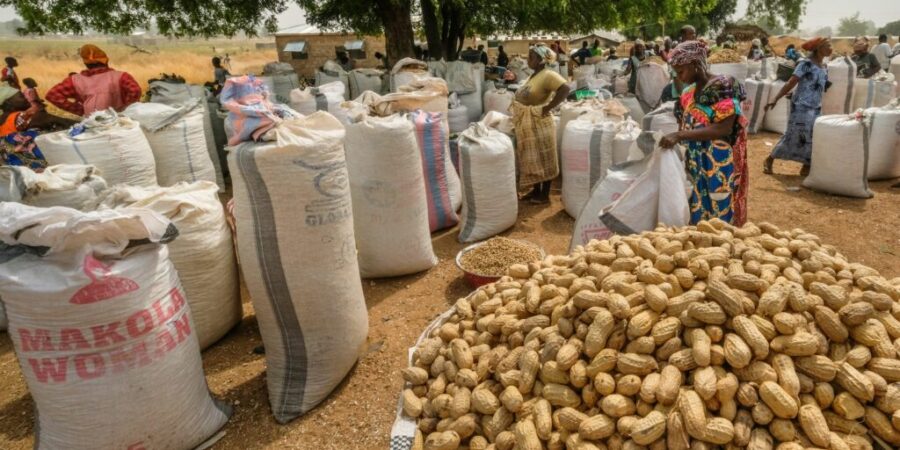In Ghana, legumes offer an important food staple and commercial crop for smallholder farmers, with legume value chains making a significant impact on food security and household incomes. However, production of legumes, such as soybean, are on the decline in the sub-Saharan Africa. This can be attributed to a number of factors, but chief among them is a lack of improved production technologies, poor access to production inputs and erratic incomes from production due to lack of appropriate linkages to markets.
The use of basic technologies without mechanization, recycled seed, and insufficient application of fertilizers all hinder production. In addition, there is a lack of effective government extension services, and where they exist, they are not adequate in providing knowledge on production technologies, especially to women farmers.
Despite legume cultivation technologies being available and widely promoted, a lack of access to practical information has led to a low adoption rate among farmers, a shortcoming examined by a working paper published by ghana. This study aimed to identify the extent of farmers’ access to agricultural knowledge on legume technologies and information flows within farming households in Ghana, and to help with selecting the appropriate ways to reach men, women and youth involved in farming.
An intrahousehold survey was conducted as part of ghana project, to help address the opportunities for improving access to and capacity to use information and knowledge by smallholder farmers to achieve sustainable legume production in Ghana.
The majority of respondents to the survey, which included 300 households and 868 respondents, obtained agricultural information from neighbours or friends, or relied on their own experience. There were also noticeable differences between gender, with men more likely to use their own experience, radio, extension officers and demonstration plots, whereas women were more likely to seek advice from agro-dealers.
At least 63% of survey respondents indicated they shared information, primarily with ‘other household members’, cutting across age and gender categories. Sharing agricultural information with others was comparatively more common for men than women, whereas younger people were more likely to gain information from older people. For men, this could be down to being able to access external sources of information gained on behalf of the household, while for older people it could be related to their experience and influential position among the family.
Uptake of highly effective new technologies, such as Rhizobium inoculants (to increase yield) and Purdue Improved Crop Storage (PICS) bags (a cost-effective way to preserve dry drops from insects), was only mentioned by a small number of farmers, underlining the need for extension activities to help with their introduction and scaling
nformation dissemination was generally prioritised for certain crops, in particular maize, soybean, other cereals and oil crops. This may reflect the importance attributed to these crops by farmers, extension workers/promoters or markets. Furthermore, its status as a global food staple makes it more likely for information on maize to be disseminated through regional channels. However, the lack or limited focus on key staple foods in Ghana, such as common bean and cassava, means that key innovations in these crops are less likely to reach farming households.
Women and elderly people are two groups that need better access to information, particularly farm-based channels such as extension visits and on-farm demonstrations. When considering the varying dynamics of intra-household information sharing found by this study, such as the tendency for households to share information with each other, targeting information to various gender and age groups could be an effective way for core information to reach those who need it.
Finally, promoting information on other foods like maize is still important, but it is important that the complementary role of legumes in the production of key staples in the region, is not forgotten about during visits by extension staff and on-site farm demonstrations.
The findings provided a starting point for the GALA project, and also enabled the selection of suitable information dissemination pathways for men, women and youth for scaling up legume technologies. Public, private and non-governmental organization sectors can also benefit from the findings, as it provides the opportunity for increased engagement with evidence on which communication channels work, and what support is required to strengthen legume value chains in Ghana. Smallholder farmers, particularly women and youth, will be enabled to profit from legume technologies that allow intensification without further land degradation.

Leave a Reply